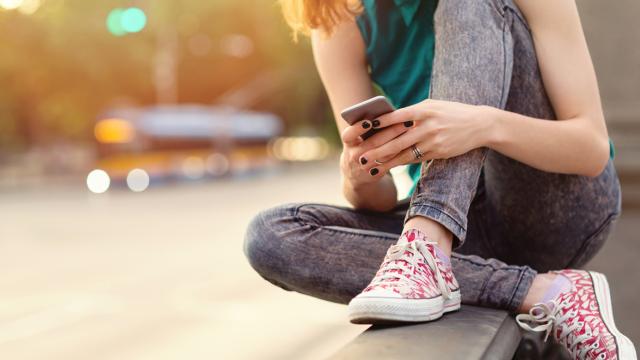Australia’s largest ever clinical trial into the effectiveness of mental health apps – specifically for preventing depression in adolescents – just received a big chunk of funding.
The team of researchers involved in the trial are from UNSW Sydney, Deakin University, Australian National University, University of Sydney, University of Melbourne, University of South Australia, Macquarie University and The Black Dog Institute – which received $2.18 million in funding to lead the study.
Dubbed the “Future Proofing” trial, it will involve 20,000 teenagers and test whether mental health apps can effectively “inoculate” Year 7 students from developing depression after 12 months.
Here’s how they’ll go about it.
Black Dog Institute Director, Professor Helen Christensen, will head up the study. Researchers from Black Dog’s Digital Dog team will examine sensor data from smartphones such as GPS, use machine learning analysis and link this to hospital and birth records to develop reliable signals to flag the onset of depressive symptoms in young people.
Following up on the students’ progress over five years, the Future Proofing study will also examine whether cognitive behavioural therapy-based apps are effective in reducing symptoms of anxiety, eating disorders, suicide risk and psychotic symptoms, as well as its impact on academic performance, sleep, physical health and drug and alcohol use.
“This study will be unlike any previously undertaken in youth mental health in Australia, both in terms of scale and potential impact,” said Professor Christensen. “Trials of this size and magnitude are commonplace for cardiovascular disease and cancer, but never for mental health.”
Professor Christensen said the research will examine “in incredible detai”l the factors that contribute to negative mental health outcomes in adolescents – from bullying, to moment-by-moment interpersonal interactions.
“Crucially, this trial will be timed at a key life transition stage – from primary to high school – which is known to be a particularly stressful time for students and their families,” Professor Christensen pointed out.
The Black Dog Institute state that past trials of smartphone apps for improving teenagers’ mental health have yielded positive results. But these studies have been small, require extensive technical setup in schools, and don’t fully utilise the enhanced capabilities of new smartphone technologies.
Previous studies have shown that under optimal conditions, depression treatments could reduce 36 per cent of global disease burden and 60 per cent of people respond to treatment, according to The Black Dog Institute.
“With one in five Australians experiencing mental illness each year, treatment alone will not be enough to deal with this mounting public health problem,” said Professor Christensen. “Up to 75 percent of mental illnesses emerge before the age of 25, making early intervention in the teenage years critical to prevent the onset of poor mental health outcomes over the life span.”
The National Health and Medical Research Council project is one of 47 recently announced as part of the Federal Government’s $53 million commitment to innovative mental health research.
[referenced url=”https://gizmodo.com.au/2016/10/10-of-the-best-mobile-games-to-help-with-anxiety/” thumb=”https://gizmodo.com.au/wp-content/uploads/2016/03/anxiety-woman-410×231.jpg” title=”10 Of The Best Mobile Games To Help With Anxiety” excerpt=”Anxiety can be crippling, persistent and affect anyone at any point in their lives. Whilst the treatment that works best can differ greatly from person to person, there is much to be said for the therapeutic benefits of play — and this includes video games.
This where your smartphone can be a lifeline. Whilst not a substitute for professional advice, therapy or medication; games can be an accessible, portable way to supplement treatment. With today being World Mental Health Day, we thought we’d highlight ten of the best games for assisting with anxiety treatment and symptoms.”]
[referenced url=”https://gizmodo.com.au/2016/04/mental-health-apps-are-mostly-rubbish/” thumb=”https://i.kinja-img.com/gawker-media/image/upload/t_ku-large/j5chanxfmgfria59gssg.jpg” title=”Mental Health Apps Are Mostly Rubbish” excerpt=”Smartphones have completely changed how we live, thanks to the endless number of apps available for them. There’s an app for everything! But beneath the glossy surface of this seemingly benign ecosystem, there’s a niche of sketchy mental health apps, which have proliferated unchecked and unregulated. It’s a big problem.”]
